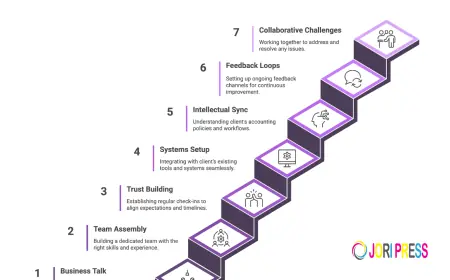Hurt at Work Lawsuit: What You Need to Know Before Filing a Claim
Getting hurt at work can be a stressful and life-changing experience. In addition to dealing with physical pain, many workers also face financial burdens and job insecurity. If you've been injured on the job, you may be wondering if filing a hurt at work lawsuit is the right path for you. This article will guide you through your legal options, what a lawsuit entails, and how to protect your rights.
Understanding Workplace Injuries
Workplace injuries can occur in any industry, from construction and manufacturing to offices and retail. Common causes include:
-
Slips, trips, and falls
-
Lifting heavy objects
-
Equipment malfunctions
-
Exposure to toxic substances
-
Repetitive strain injuries
No matter how the injury happens, the consequences can be serious—ranging from short-term disability to permanent impairment.
Workers’ Compensation vs. Personal Injury Lawsuit
Most injured workers are eligible to file a workers' compensation claim, which provides benefits such as:
-
Medical treatment
-
Temporary or permanent disability payments
-
Vocational rehabilitation
-
Death benefits (for family members of a deceased worker)
Workers’ comp is a no-fault system, meaning you don’t have to prove your employer was negligent. However, it also limits your ability to sue your employer directly.
That said, there are exceptions where a personal injury lawsuit may be possible:
1. Third-Party Negligence
If a third party (not your employer) contributed to your injury, you may be able to sue them. For example:
-
A subcontractor on a construction site caused the accident.
-
A defective tool or machine manufactured by another company injured you.
2. Employer Misconduct
In rare cases involving gross negligence or intentional harm, you might be allowed to sue your employer outside the workers' comp system.
What You Need for a Hurt at Work Lawsuit
If you’re considering a lawsuit, here’s what you’ll need to build a strong case:
-
Documentation of the injury: Medical records, incident reports, and photos.
-
Proof of negligence: Evidence showing that someone else was legally responsible for your injury.
-
Losses: Documentation of lost wages, medical bills, and emotional distress.
It’s essential to act quickly, as there are strict deadlines (statutes of limitations) for filing injury claims, which vary by state.
Steps to Take After Getting Hurt at Work
-
Report the injury immediately to your supervisor or HR department.
-
Seek medical attention and keep records of all treatments.
-
Document everything, including witness statements and photos of the scene.
-
Consult an experienced work injury attorney to evaluate your legal options.
-
File a claim—either a workers’ comp claim or a lawsuit, depending on the circumstances.
Why Legal Help Matters
Navigating a hurt at work lawsuit is complex. An experienced personal injury or workers' compensation attorney can:
-
Determine whether you have a valid lawsuit.
-
Handle paperwork, negotiations, and communication with insurers or opposing counsel.
-
Help you recover the maximum compensation you deserve.
Most work injury attorneys offer free consultations and work on a contingency basis, meaning you don’t pay unless they win your case.
Final Thoughts
Being hurt at work is not only painful—it can affect your ability to earn a living and provide for your family. Whether you pursue a workers’ comp claim or a personal injury lawsuit, knowing your rights is crucial. Speak with a qualified lawyer as soon as possible to explore your options and protect your future.
What's Your Reaction?
 Like
0
Like
0
 Dislike
0
Dislike
0
 Love
0
Love
0
 Funny
0
Funny
0
 Angry
0
Angry
0
 Sad
0
Sad
0
 Wow
0
Wow
0

















































